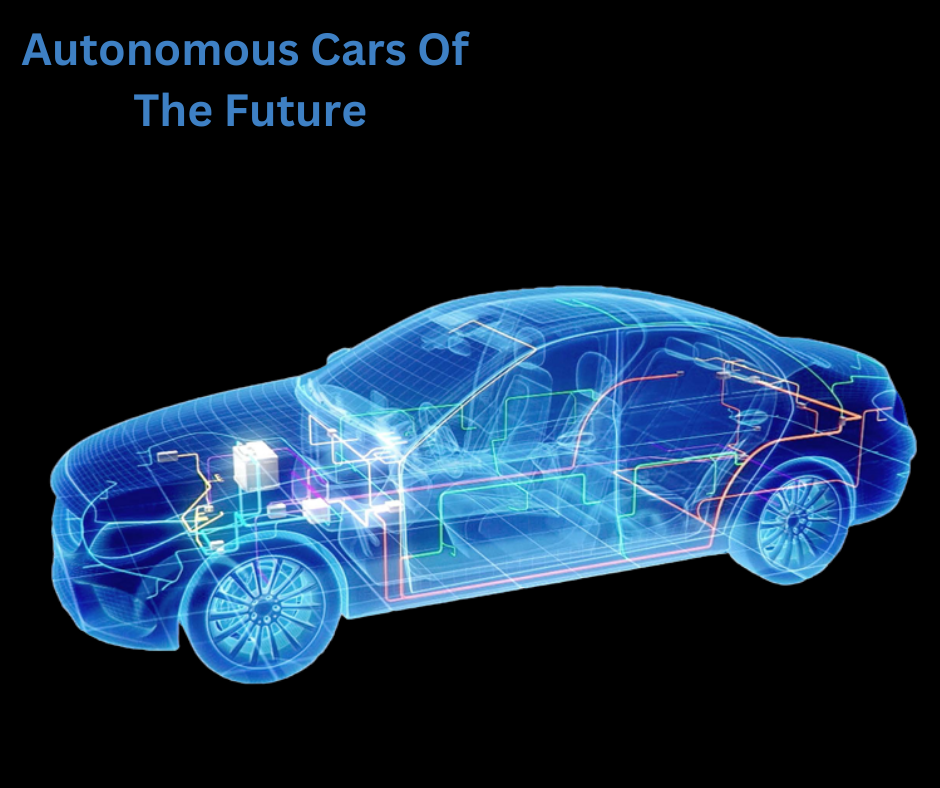Discover how autonomous cars are set to change the world as we know it – read on to learn more about this fascinating topic.
Autonomous Cars Of The Future
Autonomous cars are the future. Not only are they the future of transportation, they’re also the future of the workplace. Autonomous cars are cars that are driven by AI, which means they can drive themselves. This technology has the potential to revolutionize the way we commute and work.
In this blog post, we’re going to explore the three ways autonomous cars work and the future of autonomous cars. We’ll discuss what autonomous cars are, how they work, and the potential impact they have on the world. By the end of this post, you’ll have a better understanding of how autonomous cars are changing the world and the role they will play in the future.
What Are Autonomous Cars?
The future of transportation is coming, and it’s called autonomous cars. Autonomous cars are cars that can drive themselves without any help from a human driver. These vehicles use a variety of sensors and technologies to navigate and avoid obstacles.
The first autonomous car was developed in the 1980s, but they are only now becoming a reality.
There are many benefits to autonomous cars, including improved safety and efficiency. For example, autonomous cars have been shown to be much safer than human-driven vehicles.
They also tend to consume less fuel, which is great for the environment. Additionally, they can speed up traffic flow by moving people around at high speeds more efficiently than traditional vehicles.
However, there are also some risks associated with autonomous cars. For example, hacking is a potential issue that needs to be addressed. If someone were able to hack into an autonomous car’s system, they could potentially cause damage or even death.
Additionally, data privacy concerns continue to be raised as more and more information is collected about our daily lives by companies like Google and Facebook. It remains to be seen how these concerns will ultimately play out in the context of autonomous cars – but we at least know that they’re here now!
How Do Autonomous Cars Work?
Autonomous cars are the future of transportation, and they’re coming sooner than you might think. These futuristic vehicles are powered by computer algorithms that allow them to drive on their own – without any need for a driver. This technology has many benefits, including reducing traffic congestion and improving air quality.
Gain the expertise of the AI with the Analytics Path AI Course in Hyderabad.
There are many challenges that must be overcome before autonomous cars can become a reality, however. For example, current autonomous car technology is not reliable in all weather conditions. Additionally, there are still some questions about how these vehicles will interact with other drivers and infrastructure on the road. But despite these challenges, autonomous cars are quickly becoming a reality – and there’s no turning back!
The Future Of Autonomous Cars
Autonomous cars are the future, and there’s no doubt about it. These vehicles are already available in some form or another, and the technology is moving forward at a rapid pace. Below, we’ll outline the current state of autonomous car development and discuss some of the potential benefits that these cars could have on society as a whole.
The AI Training in Hyderabad course offered by AI Analytics Path will be practical for showing your expertise as a professional in this field.
First, let’s take a look at the history of autonomous cars and how they’ve come this far. Autonomous cars have been around for quite some time now, but they’ve undergone a lot of development to get where they are today. Early versions of autonomous cars were mainly based on physical sensors that would detect obstacles and track the car’s surroundings. However, this method was limited in terms of accuracy and was slow to react to changes in the environment.
Over time, however, advances in artificial intelligence (AI) has allowed for more sophisticated sensors that can see more clearly in low-light environments and make better decisions quickly. This technology has also allowed for more advanced features such as automatic driving – meaning that the car can drive itself without any input from a human driver. In addition to automatic driving, other features that are currently available include obstacle detection, lane changing assistance, collision avoidance systems, and more.
However, there are still many challenges that need to be addressed before autonomous cars can become a reality on streets across the world. For example, current autonomous car technology is not reliable in extreme weather conditions (elevation changes etc.), cannot handle large crowds or tight spaces well (vehicles interfering with each other), and struggles with complex traffic scenarios (multiple intersections with tight turns). These issues will need to be resolved before widespread adoption of autonomous vehicles is possible.
Once these problems have been resolved – which seems likely given how rapidly progress is being made – autonomous car technology could revolutionize transportation as we know it! Not only would it save people time by eliminating manual driving tasks; but it could also create new opportunities for employment within related industries such as transportation management or logistics management. In short: autonomy is coming soon!
To Sum Things Up
This Tricky Logics gives you an overview of industry trends and the state of big AI studies.
The future of autonomous cars is looking very promising. With the technology constantly improving, it won’t be long before these cars are commonplace on our roads. We can expect them to greatly reduce accidents and make our journeys quicker and more efficient. Exciting times are ahead for the automotive industry!








